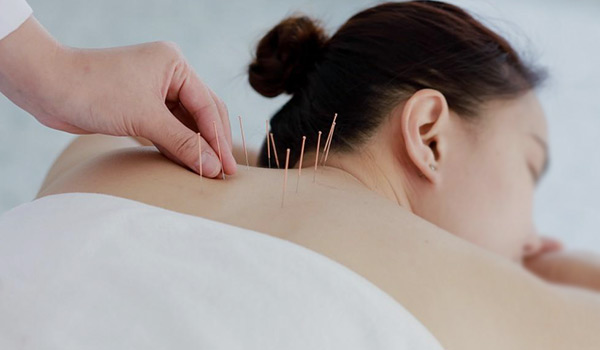For millennia, Traditional Chinese Medicine has employed acupuncture, which entails precisely inserting and manipulating slender, sterile needles into designated acupoints across the body. This ancient practice has demonstrated remarkable efficacy in alleviating pain and promoting therapeutic benefits. Contact Halton Chiropractic Clinic right now to learn more about our acupuncture treatment options in Oakville if you’re looking for an alternate method of pain relief.
Our skilled medical professionals at Halton Chiropractic Clinic have discovered that acupuncture benefits accident victims when combined with qualified massage and physiotherapy.

How Does Acupuncture Work and What Does it Treat?
The basic idea behind acupuncture is that stimulating particular body points, or acupoints, energy, or Qi (pronounced “chee”), can regulate and restore equilibrium to the body’s systems. According to traditional Chinese medicine, it is predicated on the idea that pain and illness can result from Qi flow imbalances or obstructions.
According to research, there are several possible ways that acupuncture might function, including stimulating nerves, releasing endorphins, which are naturally occurring chemicals that reduce pain, and altering neurotransmitter activity. Additionally, acupuncture may aid in reducing inflammation and enhancing blood circulation.
Numerous conditions have been treated with acupuncture, including but not limited to:
Pain management: Acupuncture is frequently used to treat chronic pain disorders, including headaches, osteoarthritis, back pain, and neck pain.
Stress and anxiety: Acupuncture is often found to be beneficial in lowering stress and anxiety levels and encouraging relaxation.
Digestive disorders: Acupuncture may help reduce symptoms of digestive disorders such as nausea, reflux, and irritable bowel syndrome (IBS).
Insomnia: Acupuncture has the potential to alleviate insomnia and enhance the quality of sleep.
Conditions relating to the respiratory system: Acupuncture may help with allergies, asthma, and sinusitis.
Women’s health: Menstrual disorders, menopausal symptoms, and infertility symptoms are frequently treated with acupuncture.
To assess whether acupuncture treatment is appropriate, your acupuncturist will inquire about your medical history before starting treatment. Your practitioner will perform a thorough examination and determine whether acupuncture will be beneficial for you in finding relief. In addition to asking about your symptoms, behaviors, habits, and lifestyle, your examination may involve examining your tongue’s shape, color, and coating. It will help the doctor create a treatment plan specific to your condition. Although there are acupuncture points on every part of the body, there are instances when the fitting points are far from your discomfort.





